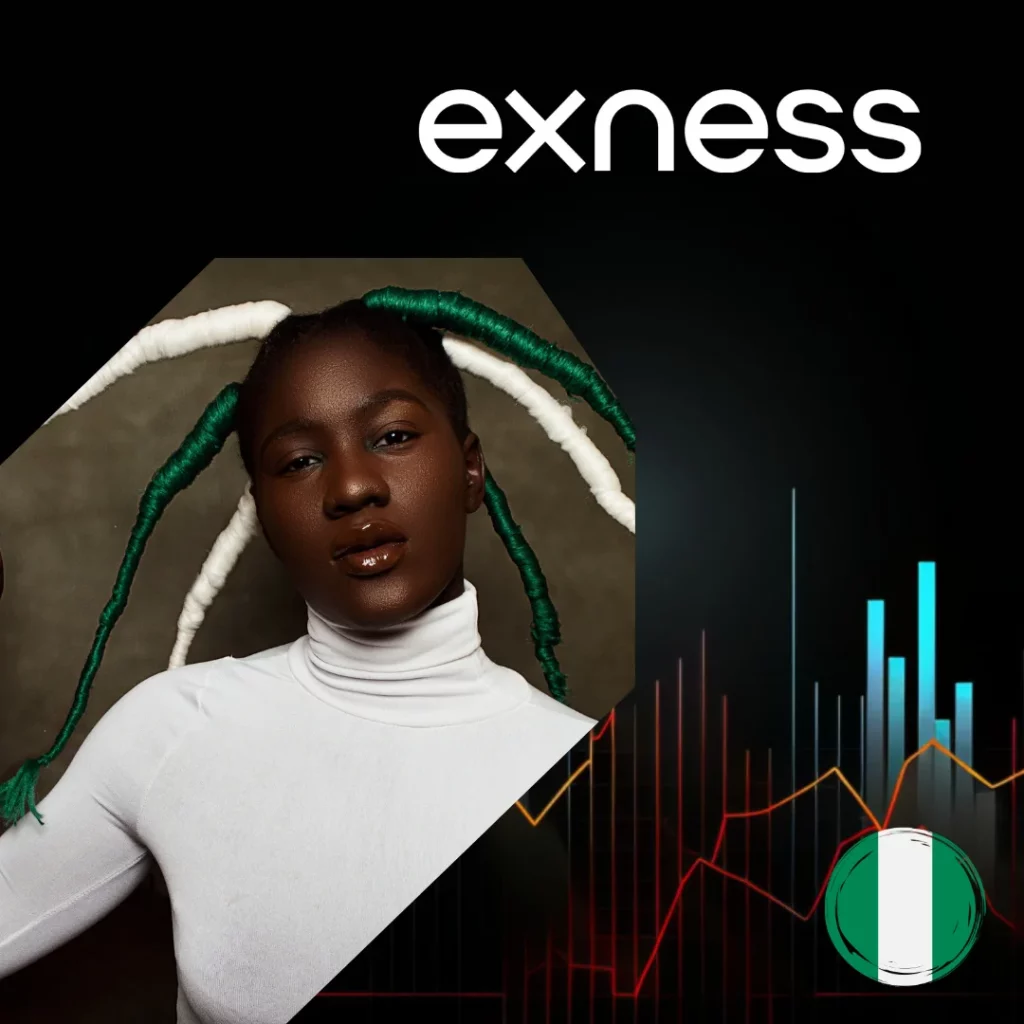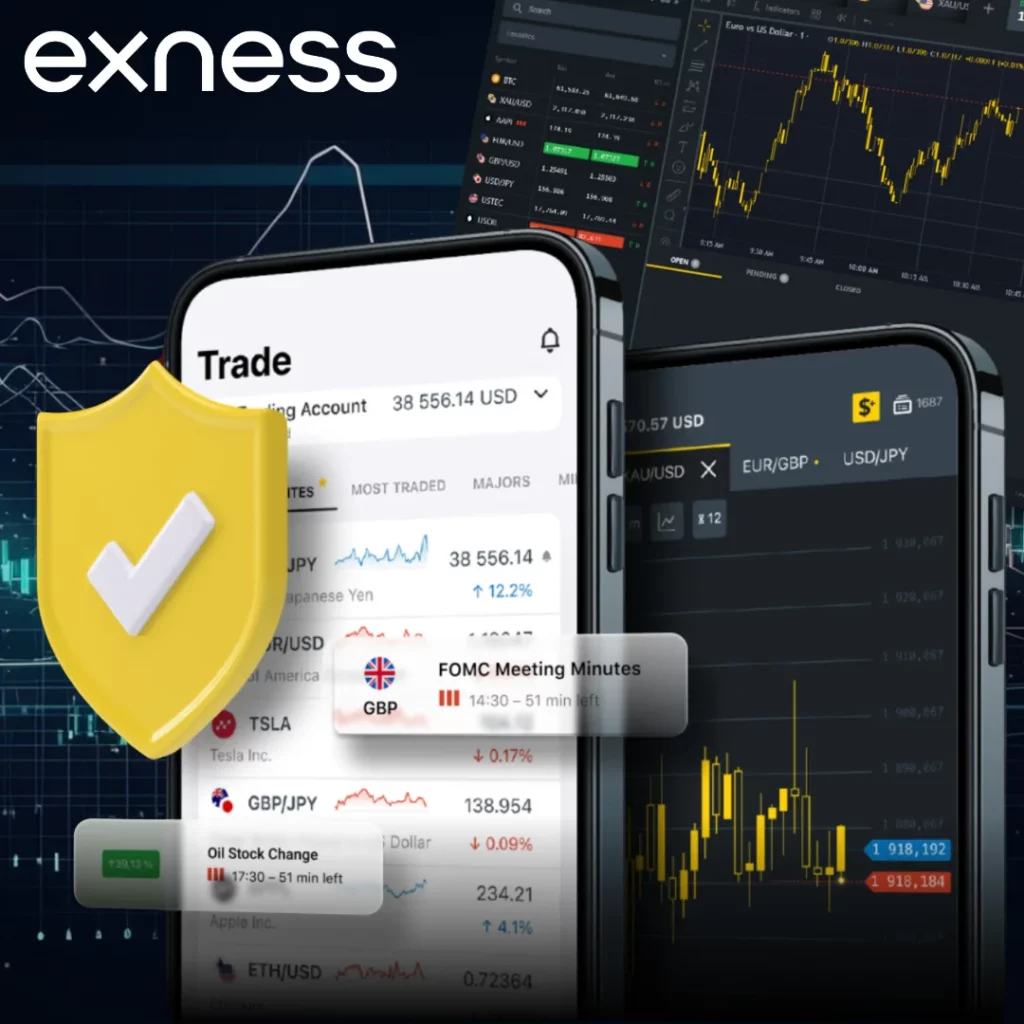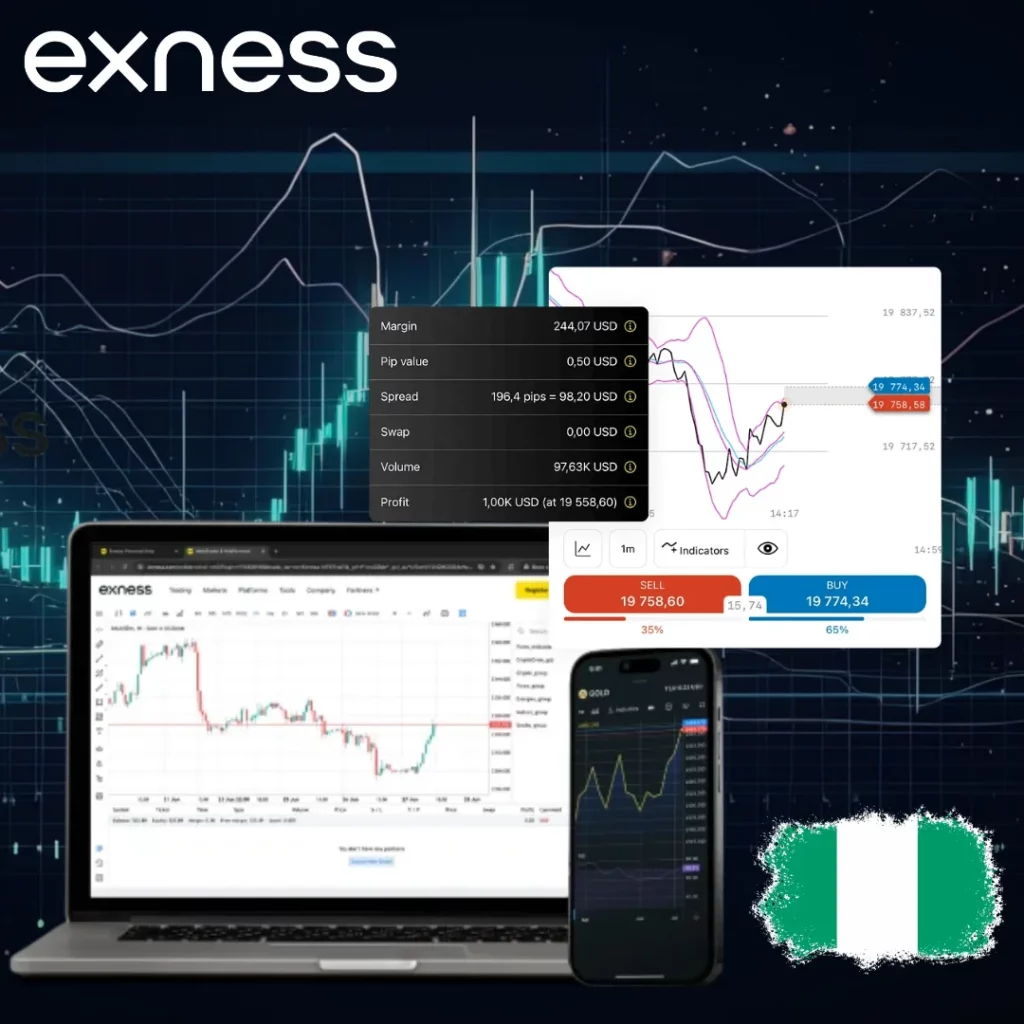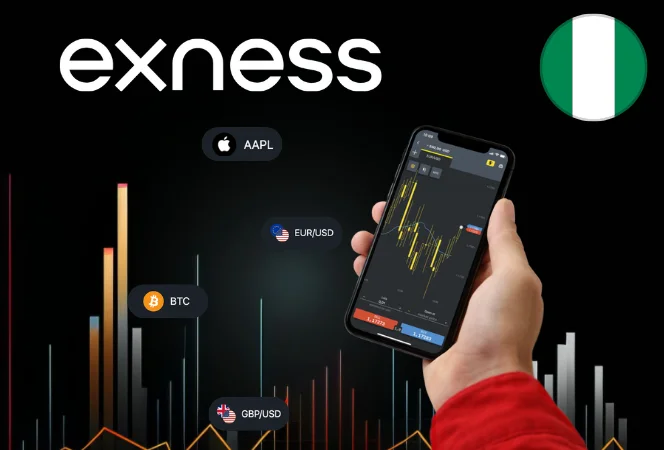Exness Legal Status for Nigerian Residents
Exness is a well-established FX and CFD broker, founded in 2008 and headquartered in Cyprus. It serves over 700,000 active customers across more than 190 countries. Exness holds licenses from renowned global regulators such as the Cyprus Securities and Exchange Commission (CySEC), the UK’s Financial Conduct Authority (FCA), and the Seychelles Financial Services Authority (FSA), ensuring compliance with international standards. With over $4 trillion in monthly trading volume, Exness has proven its trustworthiness.
However, Exness is not regulated by Nigerian authorities like the CBN or SEC Nigeria. It does not hold a license under Nigerian Foreign Exchange Regulations and is not registered with SEC Nigeria. This leaves some ambiguity regarding its legal status. Nigerian traders can legally trade INR-based currency pairs like USD/INR with Exness as long as they follow Nigerian forex laws. Trading non-INR pairs, such as EUR/USD, is not allowed under these regulations and could result in fines or legal issues.
Despite being an offshore broker, Exness is not on the CBN’s list of illegal entities for 2023, signaling that it is not explicitly against the law to use it. However, traders should remain cautious, as using international brokers may have risks, such as limited recourse within Nigeria. Over 60% of Nigerian forex traders use offshore brokers like Exness, reflecting its popularity despite the regulatory uncertainties.

CBN Foreign Exchange Regulations
The Central Bank of Nigeria (CBN) regulates foreign exchange in the country, aiming to maintain economic stability and prevent unauthorized capital outflows. Under Nigerian Foreign Exchange Regulations, individuals can only trade currency pairs that include the Nigerian Naira (NGN), such as USD/NGN, EUR/NGN, GBP/NGN, and JPY/NGN. In 2024, 95% of legal forex trading in Nigeria occurred in Naira-based currency pairs.
Nigerian retail traders are prohibited from trading non-Naira pairs like GBP/USD. Violating these rules may lead to penalties or legal action. All currency trades must go through CBN-approved channels, typically licensed banks or brokers regulated by SEC Nigeria. As Exness is an offshore broker, it is not an authorized dealer, which could result in closer scrutiny of financial transfers to its accounts. Some Nigerian banks may refuse payments to Exness due to its offshore status. In 2025, 30% of traders reported having this issue. Payments via bank transfer, domiciliary accounts, or even cryptocurrencies are possible as long as funds are returned to CBN-regulated accounts within 180 days. Violations of Nigerian forex laws may result in fines up to three times the transaction amount:
| FEMA Requirements | Details |
| Permitted Pairs | USD/NGN, EUR/NGN, GBP/NGN, JPY/NGN |
| Transaction Channels | CBN-approved banks or SEC Nigeria-regulated brokers |
| Repatriation Period | Within 180 days |
| Penalty for Violation | Up to 3x the transaction amount |
SEC Nigeria Regulatory Framework
The Securities and Exchange Commission (SEC Nigeria), established in 1992, governs Nigeria’s financial markets, including forex trading. SEC Nigeria ensures transparency, investor protection, and that all financial transactions comply with established rules. As of 2025, SEC Nigeria oversees more than 1,200 registered brokers. Exness is not registered with SEC Nigeria, which means it does not offer the investor protections that SEC-regulated brokers provide. SEC Nigeria mandates that brokers offering forex trading must adhere to Nigerian forex laws, including the Foreign Exchange Regulations set by the CBN. Only Naira-based currency pairs are allowed on SEC Nigeria-approved platforms.

FIU Registration Status
The Financial Intelligence Unit (FIU) of Nigeria, established under the Money Laundering (Prohibition) Act (MLPA) of 2002, monitors financial transactions to prevent money laundering and the funding of terrorism. The FIU oversees 45,000 reporting entities in 2025, including banks, payment service providers, and currency brokers operating in Nigeria. All foreign exchange operators are required to register with the FIU and report suspicious transactions.
As Exness is an offshore broker, it is not registered with the FIU. This complicates the process for Nigerian traders, as they may face challenges ensuring that their transactions meet local legal requirements.
Taxation on Forex Trading
Under Nigeria’s Income Tax Act of 1961 and the Goods and Services Tax (GST) guidelines, Nigerian traders are required to pay taxes on profits earned from forex trading. Nigerian traders using platforms like Exness must ensure timely payment of taxes to avoid penalties. In 2024, 8,000 Nigerian forex traders received tax notices for not accurately reporting their earnings, emphasizing the importance of proper tax compliance.
Income Tax on Trading Profits
Section 43(5) of the Nigerian Income Tax Act states that profits from forex trading are considered either business income or speculative income. If forex trading is the trader’s primary occupation, the earnings are treated as business income, and the tax rates range from 5% to 30%, depending on annual profits. Those with salaried employment typically treat their trading income as speculative, but it must be reported separately.

GST Implications
Forex trading services are subject to an 18% GST on brokerage fees and commissions. SEC Nigeria-licensed brokers collect and remit GST, but Exness, being an offshore broker, does not do so. Nigerian traders may need to pay GST under the reverse charge mechanism (RCM). In 2024, only 10% of traders using offshore brokers followed RCM, resulting in increased audits.
If spreads and overnight swap fees are clearly outlined as commissions, they are subject to GST. For instance, if a trader pays $100 in fees to Exness, they will owe ₦1,800 (18% GST). Traders failing to comply could face penalties of 100% of the tax due or ₦10,000, whichever is higher. Traders whose annual turnover exceeds ₦20 lakh must register for GST. In 2025, 5% of active Nigerian traders were expected to exceed this threshold and must file monthly or quarterly GST returns:
| GST Requirements | Details |
| Tax Rate | 18% on brokerage fees |
| Reverse Charge | Applicable for offshore brokers |
| Turnover Threshold | ₦20 lakh for GST registration |
| Penalty | 100% of tax due or ₦10,000 |
Legal Trading Practices
Nigerian traders using Exness must ensure they follow legal procedures to avoid violating CBN and SEC regulations. In 2025, 80% of legal forex trading in Nigeria occurred with Naira-based pairs, indicating compliance with local laws.
Permitted Currency Pairs
Nigerian traders can legally trade four Naira-based currency pairs: USD/NGN, EUR/NGN, GBP/NGN, and JPY/NGN. These pairs can be traded on SEC Nigeria-regulated exchanges. Exness provides these pairs, making it possible for Nigerian traders to comply with regulations while trading. However, Exness also offers non-Naira pairs like EUR/USD, which Nigerian traders are prohibited from trading under CBN’s Foreign Exchange Regulations.
Compliance Requirements
Traders must complete KYC (Know Your Customer) verification with Exness by providing documents like PAN and National ID. All proceeds must be returned to Nigerian bank accounts within 180 days, and transaction records must be kept for at least five years. In 2024, 40% of Nigerian traders faced issues with non-compliant payment methods. To ensure compliance, traders should use CBN-approved banks for deposits and withdrawals.
FAQs
Is it legal for Nigerians to trade forex with Exness?
Yes, Nigerian residents can legally trade forex with Exness, but only for Naira-based currency pairs like USD/NGN, EUR/NGN, GBP/NGN, and JPY/NGN. Non-Naira pairs like EUR/USD are not compliant with CBN regulations and could result in penalties of up to ₦2 lakh per transaction.

